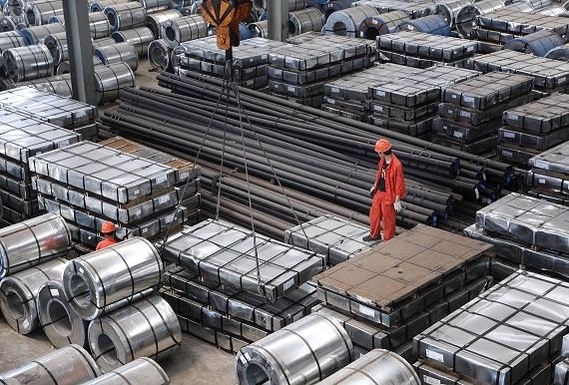Hard Time

While the United States is highly likely to mount its pressure on South Korea by way of Section 232 of the Trade Expansion Act of 1962, major steel importing countries such as Canada, India and Japan are joining the US in bashing Korea. Korea’s steel export environment is also expected to get tougher next year as China reduced export tariffs.
According to the steel industry on December 25, Canada imposed anti-dumping duties of up to 88.1% on Korean carbon and alloy steel pipes, which will hold until 2022. Therefore, additional tariffs of 52.5%, 27.5% and 12.9% were levied on products of Hyundai Steel, SeAH Steel and Nexsteel, respectively.
Of note is an attitude of the Canadian government that is following the United States’s lead. The Canadian company which filed the lawsuit claimed a dumping margin of 58.2% of Korean products but the Canada Border Services Agency (CBSA) imposed an anti-dumping duty rate of 88%, saying that some Korean companies were not cooperating in handing in information to the CBSA. This is similar to a US case that imposed an anti-dumping duty of more than 60% by using the "adverse facts available (AFA)" provision, saying that POSCO did not submit data requested by the US last August. Canada recently tightened regulations on steel trade, including the final decision to impose an anti-dumping duty of up to 45.8 percent on Korea's industrial steel structures in April.
It is not only Canada that imposed an anti-dumping duty on Korean steel products. On November 19, Japan made its preliminary determination of up to 74% of anti-dumping duties on 19 Korean steel pipe fittings. In April, India imposed anti-dumping duties of US$ 478 to US$ 561 per ton on hot rolled steel plates from Korea by 2021. Of the total 193 cases where export control measures were imposed on Korean products by countries around the world, 87 cases or 45% are involving steel and metal products. The United States is the largest country with 20 cases, followed by Canada (9 cases), India (8 cases) and Australia (8 cases). To top it off, Korean steel products are highly likely to become a common target all over the world if the US believes that Korean steel products will affect its security at the beginning of next year using Section 232.
To make matters worse, China, which had been the main culprit behind steel product oversupply in the world, decided to lower its export tariffs on its steel products starting next year. The Chinese government imposed 15% export tariffs on semi-finished products from 2007 as China’s steel exports rose but the tariffs were reduced to 5% to 10% by products. A recent recovery in Korea's steel exports was largely attributed to Chinese authorities’ restraint on a flood of low-priced Chinese steel products as the Chinese government initiated a restructuring of the Chinese steel industry. If China's steel products flood again, countries’ protectionism for steel products may become even stronger. "All major steelmakers are based on their domestic markets," an industry official said. "If the steel industry becomes sluggish, nations will have no choice but to choose protective trade."
Meanwhile, the US Department of Commerce will submit a steel industry survey report to US President Donald Trump in mid-January of next year in accordance with Section 232 and Trump will finally determine whether or not the US will impose sanctions against Korean steel products by April 16 of 2018. When Section 232 is triggered, Korea will lose a market amounting to 3 trillion to 4 trillion won a year. Thus, the Korean government is planning to file a lawsuit against the US AFA provision at the World Trade Organization (WTO).
The Korean Ministry of Trade, Industry and Energy has been reportedly working to institute a lawsuit at the WTO after America’s application of the AFA provision to POSCO's hot rolled steel plates in August of last year. Korea has refrained from bringing this case before the court of the WTO to reduce unnecessary friction with the United States in terms of diplomatic and security cooperation with the US and a renegotiation over the Korea-US Free Trade Agreement (FTA). However, as when the United States triggers Section 232 on Korean steel products, other countries including those of the European Union will follow suit and launch investigations into Korean steel products. Thus, the Korean government is clarifying its position to appeal to the WTO to cut off the vicious cycle.


